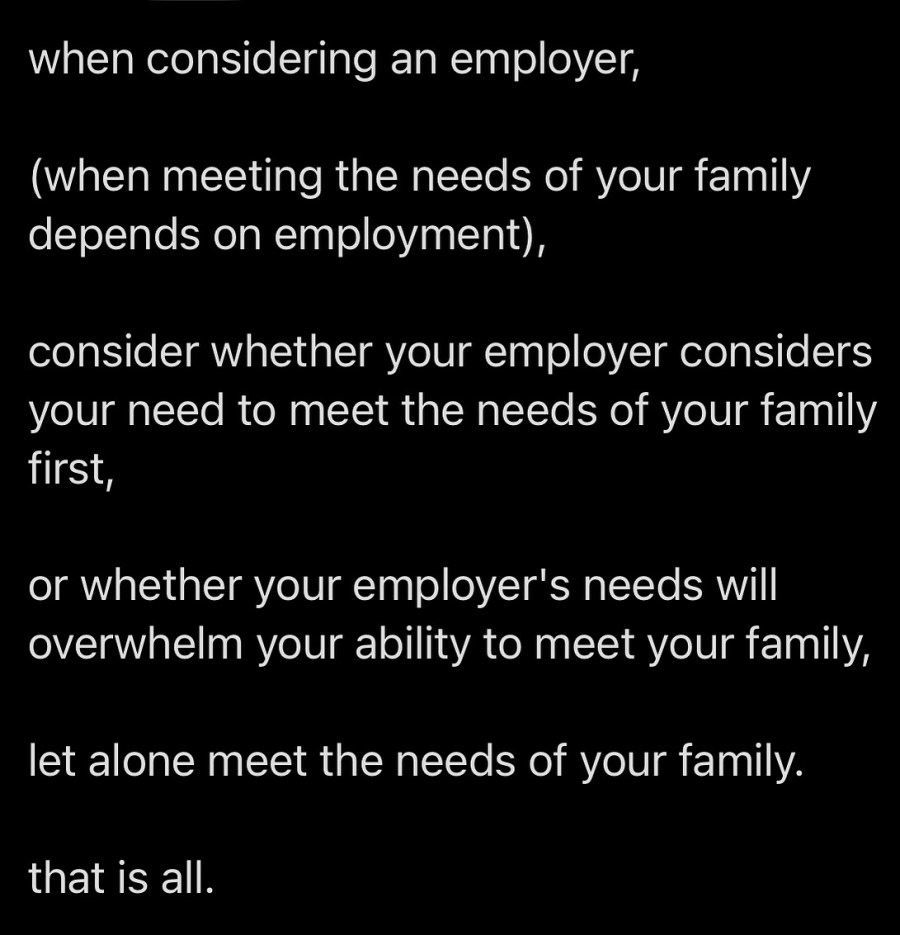
meme
❣️
all the little things you do are done for love.
don’t doubt it. shout about it.
shout about the things you do for love.
(it’s about the little things)
little things are moved toward love.
(If you are moved, move the little things toward love)
love this, sweetie
lovethislovethislovethislovethislove
i, advocate

If you’ve been following my neurodiversity journey–as I articulate the experience of a person with autism, ADHD, aphantasia, and proprioception hyposensitivity from the inside, along with the other ways i share myself–and you’ve found that the insights I’ve shared connect with your experience, or contextualize something you suspected, realize that sharing these insights is one of the ways I care for my community.
And realize that, as a person with no degrees or qualifications as an advocate other than my lived experience and my inborn gifts, what I share makes no sense in the context of capitalism.
If you find that a person like me is a valuable part of the community, and worthy of support, realize that, within the context of 21st century American capitalism, there’s not much support for people like me, or for the people I advocate for, who often don’t have the gift for articulation that I share with my community.
I could institutionalize myself: pursue an advanced degree that legitimizes my advocacy in the context of capitalism, and in doing so, would need to unplug myself from the community that I move through, and in doing so, become another victim of capitalism – saddled with huge debt, and most likely unable to find an official advocacy position that would pay off that debt in my lifetime.
I choose, instead, to move through my community in the ways I’ve been moving, because my community moves me to do so, and that’s how I show up. That’s how I care.
If you find this valuable, I’m asking to be allowed to continue advocating for your sensory and cognitive gifts, to continue recontextualizing valuable predispositions that have been pathologized. I’m asking to be adopted. I’m asking for your care. I’m asking for your support.
In asking for your support, I’m not asking to be the CEO of Spotify, or Starbucks, or Paramount+, or Ridwell, or any of the other services that folks find valuable and subscribe to. I’m asking for just enough care to be allowed to live and continue to do the work that I do. If you subscribe to even a little bit of the philosophy I share, consider subscribing to me, so I can continue caring for my community in the ways that I do.
Thanks for all you do, and thank you for being you.
the care economy
The care economy is an emerging model for supporting people, things, and processes we’d like to see more of in the world. It is about recognizing the things in our experience that bring us joy, that give us a [wow] or a [yes], and responding to these moments in a supportive way. It’s actually just, well, practicing care, and that’s not new at all. But the language of commerce is transactional, rather than responsive.
I recognize that I love the work that I do with people so much that I would offer it for free if I was supported–if all of my needs were met. But traditional models don’t allow for that type of responsiveness. I would like to try to move toward a more responsive system, built on trust. Why not?
People who know me can decide if they trust the work I do, and they can choose to support me so that I can do that work, or not. In doing so, they are allowing me to be more myself, and guiding me toward their own needs. I’m the product, in a sense, but since our relationship is based on trust, I’m allowed to do the work I believe, adjusting to the needs that arise, as they align with those who trust me.
This simple shift makes the difference between the transactional and the responsive. But it’s kind of vulnerable and scary. I have to trust those that are responding. Will I be supported? Will enough people believe in the work? If I am being truly responsive to their needs, then perhaps. I think it’s worth a try.
I see a difference between commitment and obligation. Commitment is a responsive engagement, where we meet the needs of the moment as it arises. Obligation can keep us stuck supporting processes that actually hinder our ability to respond to the moment.
So, I see a possibility emerging to do things in a more responsive way, and in seeing how obligation often thwarts connection, I would like to avoid transactions that create a sense of obligation, and nurture ones that give one a sense of [wow] or [yes].
So, think about our interactions in the spaces we share. If our conversations seem to be taking us in good directions, let’s continue the conversation. If helping to support me gives you a sense of [wow] or [yes], then you are participating in the care economy. Thank you for recognizing your own power to support, and if our goals align, thank you for your support.
🏳️🌈
Supreme Court 2025 = Spanish Inquisition 1616
It wasn’t until 1992 that the Catholic Church admitted their mistake. 376 mf’ing years.
Diversity is the truth. Orthodoxy is the lie.
Don’t let it take 4 centuries to pull your head out of your orthodox hindquarters!
Pride = Life
🗯️
seeing a man peeing on a wall, next to an open port-a-potty:
have I crossed a threshold into a world of pure metaphor?
👫
Friends don’t let friends enter highly-charged and heavily armed oppositional demonstration spaces without a clearly articulated plan and a high level of coordination with well-defined allies.
Trusting our instincts only works when we are very familiar with our environment and aware of the ways that a situation can change.


